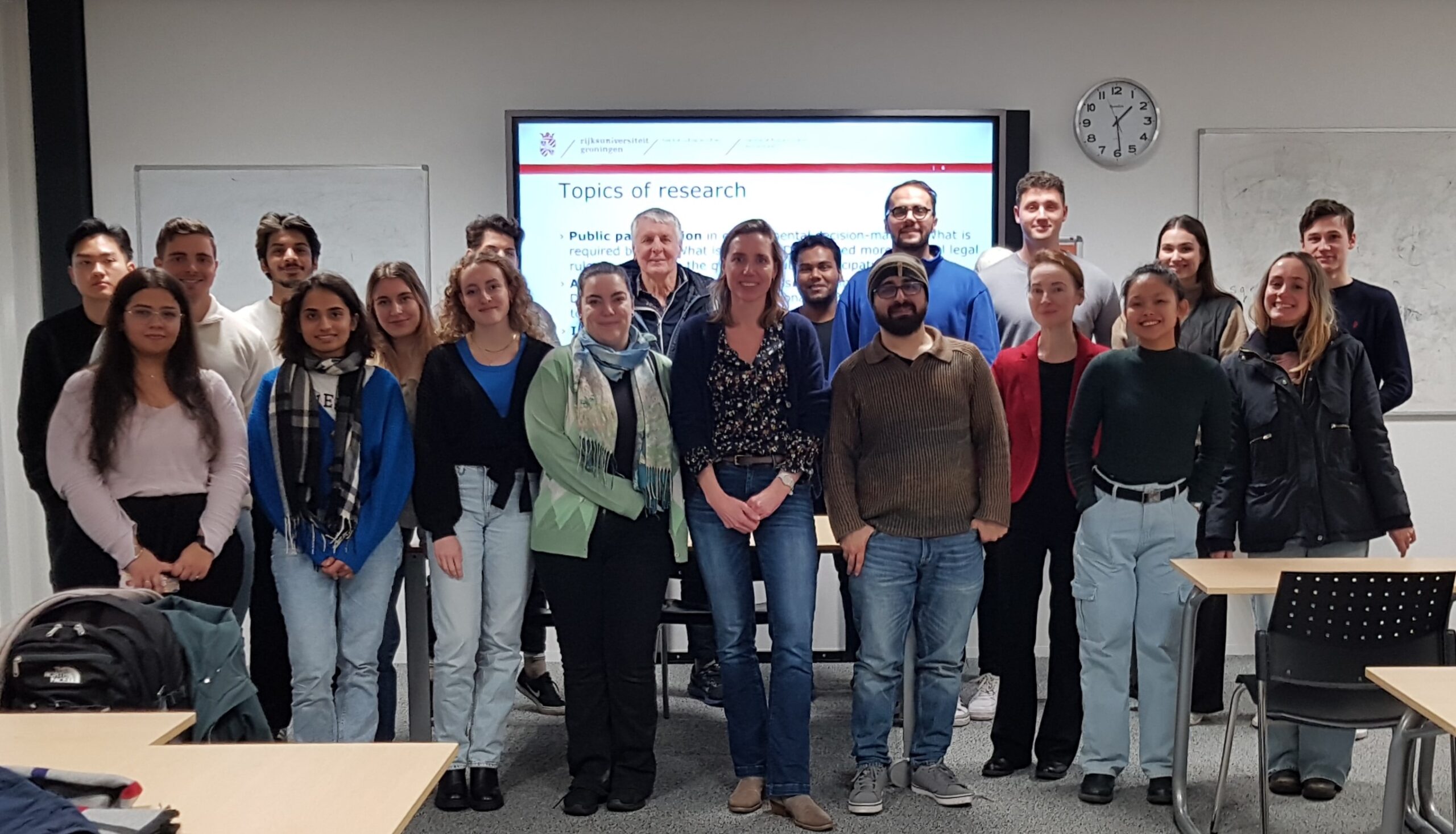20 januari 2025
Tackling challenges in administrative decision-making, legal protection, and permit issuance.
How is EU environmental policy implemented in the Netherlands, and what does this mean for businesses? How can we tackle challenges in administrative decision-making, legal protection, and permit issuance? These were some of the key questions discussed during a thought-provoking Jean Monnet Chair seminar with Professor Hanna Tolsma, a leading expert in Dutch Environmental Law.
How is EU environmental policy implemented in the Netherlands, and what are the implications for businesses? What challenges exist in administrative decision-making and legal protection under Dutch environmental law? How do public participation and access to justice influence the process? How is the Aarhus Convention applied in the Netherlands, and is it being misused, as some claim? What steps can be taken to expedite the issuance of environmental permits? And how can we ensure effective environmental compliance across the EU?
These and other questions were addressed during an insightful Jean Monnet Chair seminar with Professor Hanna Tolsma. An expert in Decision-Making and Legal Protection within Dutch Environmental Law, Professor Tolsma provided invaluable insights into the current landscape of environmental governance in the Netherlands.
During the seminar, Professor Tolsma shared her role as a member of the Evaluation Committee for the Dutch Environmental and Planning Act, which came into force on January 1, 2024. This landmark legislation establishes an integrated approach to environmental management in the Netherlands, defining the roles and responsibilities of various levels of government. The Act is a culmination of over a decade of collaboration among Dutch legal experts and is recognized as one of the most progressive environmental laws in both the EU and globally.
Additionally, Professor Tolsma discussed her contribution to the advisory report “Judging the Right Balance,” which tackles the growing trend of ‘juridification’ in environmental governance. As courts are increasingly relied upon to enforce environmental rules—particularly around the issuance of environmental permits—her work emphasizes finding the right balance between legal enforcement and the practical needs of residents, businesses, public authorities, and interest groups.
The seminar participants expressed concerns regarding environmental compliance within the EU, especially in member states that are reluctant to fully adhere to EU directives. They also debated the challenges of applying uniform regulations across diverse member states, such as the protection of certain species like wolves. Ultimately, there was consensus that while adherence to the rule of law is essential, the balance between universal legal frameworks and the necessary flexibility for different contexts is key.
One key takeaway from the seminar was the realization that Dutch environmental law is essentially an implementation of EU environmental policy. Although Professor Tolsma specializes in Dutch law, she acknowledged how her work is deeply connected to the broader EU legal framework, offering an enlightening perspective for all attendees.
We extend our gratitude to Professor Tolsma for sharing her expertise with the Hanze community and to Dr. Beata Kviatek, Jean Monnet Chair in Sustainable EU Economy, for organizing this enriching event. Thanks to Dr. Kviatek’s efforts, the seminar offered a valuable learning experience for all participants.
The Jean Monnet Chair in Sustainable EU Economy, held by Dr. Beata Kviatek, plays a key role in fostering a deeper understanding of European Union policies and their implications for sustainable economic development. As part of its mission, the Jean Monnet Chair organizes a series of seminars that bring together experts, scholars, and students to discuss critical topics related to EU law, economics, and sustainability. These seminars provide a unique platform for cross-disciplinary discussions and offer valuable insights into how EU policies are shaping the future of environmental and economic governance. By engaging with thought leaders like Professor Hanna Tolsma, the Jean Monnet Chair initiative helps bridge the gap between academic research and practical application, contributing to the development of informed, sustainable business practices and policies within the EU context.
